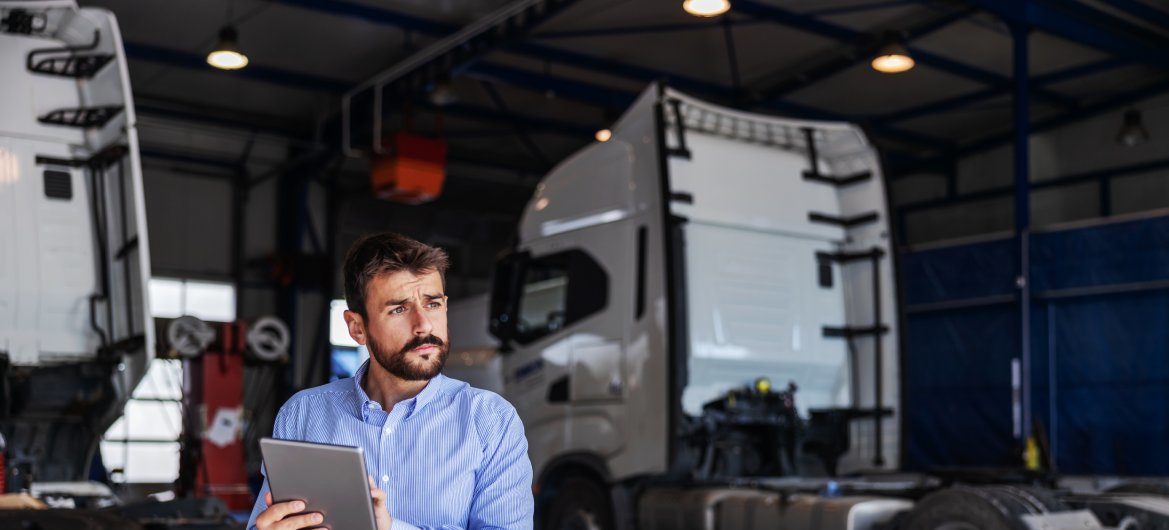

Trucking Taxes and Insurance Explained
09.20.2022
What Every Owner Operator Needs to Know About Taxes and Commercial Trucking Insurance
When you start your trucking business, you are responsible for everything from maintaining your equipment to making sure you have the right commercial trucking insurance. One of the most important things you need to do is handle your taxes and your insurance correctly. To help you do so, here is a look at some of the most essential information you should have about keeping track of your taxes and insurance as an owner-operator.
What Every Owner Operator Should Know About Taxes
As an owner operator, you are considered self-employed. This means that you are responsible for paying your taxes. Being self-employed also means that taxes work differently for you than they did when you worked for another company. Here are some of the things to keep in mind as you navigate self-employment taxes as an owner operator.
Keep your records organized
Because you are responsible for your taxes, you will want to remain organized and on top of your record keeping. This means collecting and keeping track of expenses, income, receipts, bank statements, invoices, and all other financial records. The more organized your record keeping system is, the less time you will need to devote to preparing your taxes every year, and the less likely you will be to make costly errors.
File a Schedule C with your tax return
Most owner operators are sole proprietors of their business. That means that come tax time, you will need to file a Schedule C with your tax return. This document allows you to report all income and loss from your business over the past year, as well as all of your expenses.
Be aware of self-employment tax
As an owner operator, you will owe the same taxes as those paid when you work for another company: Personal income tax, state income tax, Social Security tax, and Medicare tax. However, you will also need to pay an additional self-employment tax, which can raise your tax debt. Planning ahead can help you afford these taxes without compromising your cash flow for your business.
Plan ahead for estimated taxes
If you are running your own business, your taxes will not be automatically deducted from your salary, as it would be if you worked for someone else’s business. As a result, you will need to pay what are called estimated or quarterly taxes. Each quarter, you send in one-fourth of your expected tax debt for the year. You can use Form 1040-ES to send in your taxes, or submit 25-35 percent of your expected net income.
Take advantage of tax deductions
One benefit of paying taxes as an owner operator is the ability to use tax deductions to lower your overall tax burden. You can deduct many of your business expenses on your tax return, including the cost of your truck, fuel, repairs, and maintenance. Here are some of the additional deductions you may be able to take:
- Some of your on-the-road meals and lodging
- Commercial truck insurance premiums
- Licensing and registration fees
- Professional services fees (e.g., Lawyers)
- Home office percentage (Based on square footage)
- Startup expenses
- And more
What Every Owner Operator Should Know About Commercial Trucking Insurance
You cannot run your truck(s) if you do not have appropriate commercial trucking insurance. Here is a look at some of the most important insurance considerations you should make as an owner operator.
Know your insurance types
Commercial trucking insurance is an essential expense that you will need to budget for as an owner operator. Your insurance needs will vary depending on the type of trucking you do and the cargo you haul. However, there are some basic coverages that all owner operators should have, including:
General Liability Coverage
This type of coverage is usually required by law and covers accidents and injuries to others that occur while your truck is off the road. It can also cover other incidents, such as the following:
- Bodily injury, including accidents such as slipping and falling on your property
- Libel or slander lawsuits
- False advertising claims
- Damage at a site not your own
- Delivery to a wrong address
- Property damage at your site or another site
Physical Damage Coverage
This type of coverage can protect you in the event of damage to your vehicles that is caused by accidents or other events, such as the following:
- Vandalism
- Natural disasters
- Theft
- Collision
- Accidents
Motortruck Cargo Insurance
This coverage will protect you if your cargo is lost or damaged while you are responsible for it.
Talk to an agent about the insurance coverage that is right for you
While the insurance coverages above are the basic types of insurance you will need, there are many other types of coverage you may also want to add to your policy. In addition, choosing the levels of coverage you require can sometimes feel confusing.
The best way to determine the types and amount of coverage that is right for your business is to consult an experienced insurance agent, like those here at RoadMasters Insurance. They can evaluate your circumstances and help you get all the insurance coverage you need—And none that you do not—So you get complete coverage for the right price.
Get quotes from multiple insurance agencies
Quotes can vary from company to company. That is why you should rarely take the very first quote you get on commercial trucking insurance. Instead, try to get several quotes from several companies. Here are some tips when evaluating your quotes:
- Make sure you are getting quotes on comparable coverage.
- Evaluate the quality of the insurance company as well as the cost of the quote.
- Be aware of quotes that are significantly lower than other quotes you receive.
- Ask about potential discounts you may be eligible for.
Looking at multiple quotes can help you find the policy that will meet your needs and fit your budget.
Be proactive in keeping your insurance rates low
You cannot control every factor that influences your insurance premiums. However, there are many steps you can take to lower your insurance rates and save money. Be proactive in staying on top of these steps. They include the following:
- Ask about deductible options—Sometimes, taking a higher deductible will result in a lower insurance premium.
- Implement safety measures and training.
- Hire experienced and safe drivers to minimize at-fault accidents.
- Maintain your equipment.
- Choose equipment that comes with safety features.
- Keep your credit score up.
- Map out trucking routes that avoid busy or high-risk areas.
Starting your trucking business can be a great way to be your own boss and earn a good living. However, it is important to understand your responsibilities when it comes to taxes and insurance. By following the tips above, you can be sure that you are handling both correctly.
Need help finding the right commercial trucking insurance? Contact RoadMasters Insurance today. We can get you set up with insurance in as little as 24 hours with competitive, effortless, and comprehensive insurance that meets your needs!




